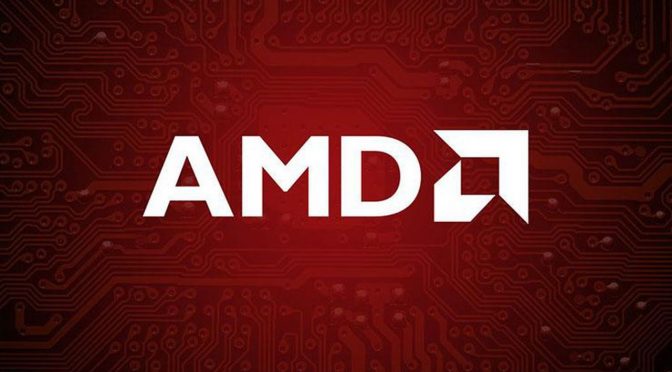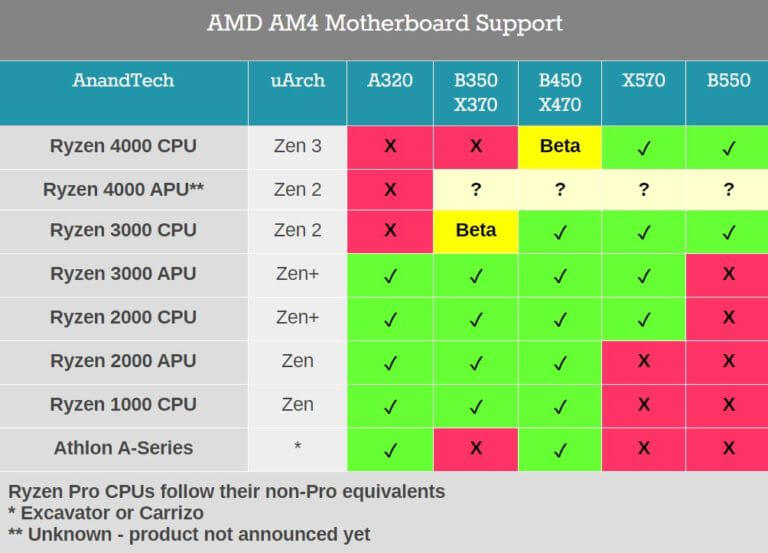Written by Metal Messiah
It looks like AMD has issued a new statement regarding the “support” for the upcoming Zen3 processors on previous B450 and X470 motherboard chipsets. AMD today confirmed that their upcoming Ryzen 4000 series CPUs codenamed “Vermeer”, will have proper support on the B450 and X470 motherboard chipset series.
This comes as a surprise because previously AMD mentioned that next-gen ZEN3 CPUs won’t be backwards-compatible with the older 400-series, as well as the 300-series of Motherboard chipsets. This seems more of a controversial move made by the Chipmaker.
AMD today is sort of “backtracking” it’s decision to limit the BIOSes on the 400-series chipsets. According to AMD:
‘We’ve heard our audience, and we understand the concerns. We are going to work out a way to support Zen 3 on our 400-series chipsets between now and launch – we’re still working out the what and the how, but we will update you closer to Zen 3 launch’.
But this move should now enable some of the users running the 400 series AMD motherboards to upgrade to the Zen 3 processors, which are set to be launched later this year. You will be able to run the Ryzen 4000 series processors on the AMD B450 and X470 boards once the right “beta BIOS” is installed.
Most of the AMD motherboards are outfitted with 128 megabit (16 megabyte) BIOS chips. Since most motherboard models have 16 MB storage, and the CPUs can only address the first 16 MB of any BIOS chip, then there might an issue where the 400-series motherboards are going to have two BIOSes, one for the upcoming Ryzen 3000 series, and one for future next-gen processors.
Let’s suppose a motherboard vendor had a larger BIOS chip, say e.g. if ASUS had a 32 megabyte chip, then it would actually operate like two split “partitioned” BIOSes and this can also get very complicated. But there is no other simple way to support every AM4 processor with a simple 16MB BIOS.
Previously, according to AMD, the company said that it ran into some ROM size limitations, when trying to push the AGESA microcode for all the older CPUs. As per AMD, the flash memory chips that store the BIOS have capacity limitations, and not all AM4-based motherboards feature dual-BIOS chip design (mostly found on the more expensive and high-end boards).
AMD will give permission to ODM partners like ASUS, MSI, Gigabyte, Dell, HP, Lenovo, and others etc. to enable this feature, however, it will be up to the ODM partner to actually implement it. AMD plans to offer support to its ODM partners on this issue, especially those having an “auto-update” software.
AMD was under a lot of criticism these past few months, since the company had originally promised that it would support the AM4 platform all the way from 2016 through 2020. But many assumed that this meant “any” AM4 platform based motherboard would be able to accept “any” processor from 2016 to 2020, including the upcoming Zen 3 SKUs.
The chipmaker actually had a change of heart and is now going to offer “Zen 3” support on the feedback they have received, and have thus decided to enable “Zen 3” support on AMD B450 and X470 boards once the right “beta BIOS” is installed.
This is what AMD plans on doing:
- “We will develop and enable our motherboard partners with the code to support “Zen 3”-based processors in select beta BIOSes for AMD B450 and X470 motherboards.
- These optional BIOS updates will disable support for many existing AMD Ryzen Desktop Processor models to make the necessary ROM space available.
- The select beta BIOSes will enable a one-way upgrade path for AMD Ryzen Processors with “Zen 3,” coming later this year. Flashing back to an older BIOS version will not be supported.
- To reduce the potential for confusion, our intent is to offer BIOS download only to verified customers of 400 Series motherboards who have purchased a new desktop processor with “Zen 3” inside. This will help us ensure that customers have a bootable processor on-hand after the BIOS flash, minimizing the risk a user could get caught in a no-boot situation.
- Timing and availability of the BIOS updates will vary and may not immediately coincide with the availability of the first “Zen 3”-based processors.
- This is the final pathway AMD can enable for 400 Series motherboards to add new CPU support. CPU releases beyond “Zen 3” will require a newer motherboard.
- AMD continues to recommend that customers choose an AMD 500 Series motherboard for the best performance and features with our new CPUs”.
Source: AMD.
User’s articles is a column dedicated to the readers of DSOGaming. Readers can submit their stories and the Editorial team of DSOGaming can decide which story it will publish. All credits of these stories go to the writers that are mentioned at the beginning of each story. Contact: Email


